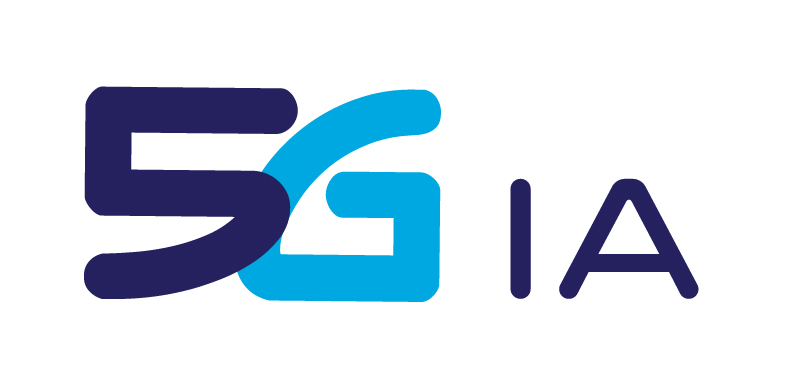
- This event has passed.
Network Management, QoS and Security Workshop @EuCNC 2016
CogNet is organising a workshop on Network Management, QoS and Security on June 27 at EuCNC2016. The projects CogNet, SelfNet, SONATA, 5G-ENSURE and 5G-NORMA all present papers at this workshop.
The tentative agenda is given below:
9.00 Introduction to the Network Management, QoS and Security Working Groups – Robert Mullins, Waterford Institute of Technology, Ireland
9.05 Keynote : “Network and cloud optimization: it’s all about the model” – Professor Danny Raz, Technion University, Israel
9.45 Paper Presentation : An Energy Efficient Architecture for 5G Network Management – Kieran Sullivan, Waterford Institute of Technology, Ireland
10.05 Paper Presentation : The SELFNET approach to Self Protection through Autonomic Network Management – Jose Alcaraz Calero, University of the West of Scotland
10.25 Coffee
10.35 Paper Presentation : NFV Reliability with Machine Learning – Marius Corici, Fraunhofer Fokus, Berlin
10.50 Paper Presentation : A New Radio Access Stratum Security Architecture Supporting Dynamic 5G Radio Access Networks – Peter Schneider, Nokia Bell Labs
11.10 Paper Presentation : Using Machine Learning to Detect Noisy Neighbours in 5G Networks – Bruno Ordozgoiti, Universitat Politècnica de Madrid
11.30 Paper Presentation : Towards Micro Segmentation in 5G Network Security – Olli Mammela, VTT Finland
11.50 Paper Presentation : Cooperative Caching in C-RAN using Bayesian Classification and Greedy Placement – Benat Azpiazu, VicomTech
12.05 Paper Presentation : A Monitoring Framework for Heterogeneous NFV/SDN Coud Environments – Theodore Zahariadis, Synelixis
12.25 Panel Discussion (20 minutes)
About CogNet
COGNET is targeting the 5G Network Management research area and particularly:
About SelfNet
The SELFNET project will design and implement an autonomic network management framework to achieve self-organizing capabilities in managing network infrastructures by automatically detecting and mitigating a range of common network problems that are currently still being manually addressed by network operators, thereby significantly reducing operational costs and improving user experience. SELFNET explores a smart integration of state-of-the-art technologies in Software-Defined Networks (SDN), Network Function Virtualization (NFV), Self-Organizing Networks (SON), Cloud computing, Artificial intelligence, Quality of Experience (QoE) and Next-generation networking to provide a novel intelligent network management framework that is capable of assisting network operators in key management tasks: automated network monitoring by the automatic deployment of NFV applications to facilitate system-wide awareness of Health of Network metrics to have more direct and precise knowledge about the real status of the network; autonomic network maintenance by defining high-level tactical measures and enabling autonomic corrective and preventive actions against existing or potential network problems. SELFNET is driven by use cases designed to address major network management problems including Self-protection capabilities against distributed cyber-attacks, Self-healing capabilities against network failures, and Self-optimization to dynamically improve the performance of the network and the QoE of the users.
www.selfnet-5g.eu
About SONATA
Virtualisation and software networks are a major disruptive technology for communications networks, enabling services to be deployed as software functions running directly in the network on commodity hardware. However, deploying the more complex user-facing applications and services envisioned for 5G networks presents significant technological challenges for development and deployment. SONATA addresses both issues.
For service development, SONATA provides service patterns and description techniques for composed services. A customised SDK is developed to boost the efficiency of developers of network functions and composed services, by integrating catalogue access, editing, debugging, and monitoring analysis tools with service packaging for shipment to an operator.
For deployment, SONATA provides a novel service platform to manage service execution. The platform complements the SDK with functionality to validate service packages. Moreover, it improves on existing platforms by providing a flexible and extensible orchestration framework based on a plugin architecture. Thanks to SONATA’s platform service developers can provide custom algorithms to steer the orchestration of their services: for continuous placement, scaling, life-cycle management and contextualization of services. These algorithms are overseen by executives in the service platform, ensuring trust and resolving any conflict between services.
www.sonata-nfv.eu
About 5G-ENSURE
The 5G-ENSURE will:
-Deliver strategic impact across technology, business enablement & standardisation.
-Develop a set of non-intrusive security enablers (AAA, Privacy, Trust, Monitoring, Network Management and Virtualization Isolation) for the core of the 5G Reference Architecture.
-Define a 5G Security Architecture needed to expand the mobile ecosystem giving operators a platform for entirely new business opportunities.
-Initiate a 5G Security test bed vision and initial set-up in which the security enablers will be made available and demonstrated.
-5G-ENSURE will define a shared and agreed 5G Security Roadmap with various 5G stakeholders. The outcome will be a trustworthy 5G system offering reliable security services to customers with a “zero perceived” downtime for service provision.
www.5gensure.eu
About 5G-NORMA
5G NORMA aims to develop a novel mobile network architecture that provides the necessary adaptability in a resource efficient way able to handle fluctuations in traffic demand resulting from heterogeneous and dynamically changing service portfolios and to changing local context. The developed “multi-service and context-aware adaptation of network functions” will allow for a resource-efficient support of these varying scenarios and help to increase energy-efficiency by always selecting the most energy efficient option.
https://5gnorma.5g-ppp.eu/







